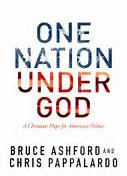A congregation that is sound in doctrine and active in deeds may nonetheless displease Christ, and might be in danger of losing the privilege of representing Christ on earth.
Jesus warns just such a congregation in Revelation 2:1-7. The church at Ephesus had been so alert and orthodox doctrinally that it had exposed false teachers and dealt with them appropriately. And it had engaged in good deeds to the point of collective exhaustion, “not growing weary” when lesser congregations would have collapsed.
But Jesus still had stern words for the church. They had “abandoned the love they had at first.”
Continue Reading “When Sound Doctrine & Furious Action Displease Christ”






